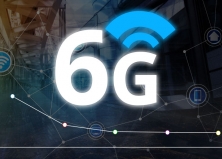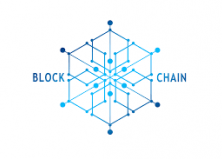2021
Special Session on Machine Learning for Future Networks and IoT Systems
Machine learning (ML) algorithms and deep learning (DL) architectures have achieved a great success in many fields, from natural language processing and computer vision to bioinformatics and communications.
In addition to effectively dealing with large-messy-confusing dataset in various learning tasks, ML/DL has outperformed traditional algorithms and further presented the superiority over human experts in some learning cases.
Moreover, the last decade has witnessed the explosion of Internet-of-Things (IoT) systems with numerous applications thanks to the advancement of electronics and communication technologies like remote sensing, 5G networks and beyond. Conventional AI has been widely applied for future networks and IoT systems, but it has exposed the essential limitation of weakly learning complex patterns from practical big data. In this context, ML/DL has emerged as a promising solution to achieve high performance in different learning tasks in terms of accuracy and processing speed with many AI-aided computing platforms while being applicable to different data modalities of IoT and mobile devices. Further, federated learning (FL) is a promising AI concept to improve the data privacy of end devices and reduce the network burden.
The aim of this special session is to colligate and disseminate state-of-the-art research contributions that address various aspects in future networks and IoT systems, including design, analysis, simulation, optimization, and implementation, by exploiting ML/DL algorithms.
Topics of interest:
The special section of ML for future networks and IoT systems seeks original contribution in, but not limited to, the following topics:
- ML/DL architectures/algorithms for pattern recognition in 5G/B5G IoT systems
- ML/DL for signal intelligence in 5G/B5G networks
- ML/DL for wireless sensing operations in 5G/B5G networks
- ML/DL for IoT security and privacy in 5G/B5G networks
- ML/DL-based resource allocation and network management
- ML/DL-enabled IoT data analytics in 5G/B5G networks
- ML/DL-enabled scalable designs for 5G/B5G IoT systems
- ML/DL-enabled modelling, analysis, and synthesis in 5G/B5G IoT systems
- ML/DL-assisted decision making in 5G/B5G IoT systems
- ML/DL-assisted services and applications in 5G/B5G IoT systems
- Incentive mechanism and game theory for FL
- Privacy and security issues of ML/DL in future networks and IoT systems
- Simulation/implementation/testbed/deployment of AI frameworks for IoT applications
Session Co-chairs:
- Thien Huynh-The (Kumoh National Institute of Technology, Korea)
- Quoc-Viet Pham (Pusan National University, Korea)
TPC members:
- Dong-Seong Kim (Kumoh National Institute of Technology, Korea)
- Van-Phuc Hoang (Le Quy Don Technical University, Vietnam)
- Nguyen Anh Tu (Nazarbayev University, Kazakhstan)
- Thippa Reddy Gadekallu (Vellore Institute of Technology, India)
- Toan-Van Nguyen (Utah State University, US)
- Van-Sang Doan (Vietnam Naval Academy, Vietnam)
- Tu Viet Nguyen (VinUniversity, Vietnam)
Contact: Dr. Thien Huynh-The (Email: thienht@kumoh.ac.kr)
Submission link: https://edas.info/N29314
IMPORTANT DATES
|
Regular/special paper submission: Manuscript submission: May 31, 2022 Notification of acceptance: July 15, 2022 Camera-ready submission: August 15. 2022 |
July 30, 2022 August 15. 2022 |
August 20, 2022 September 10, 2022 |
|
Proposal submission for Special Sessions: April 30, 2022 |


